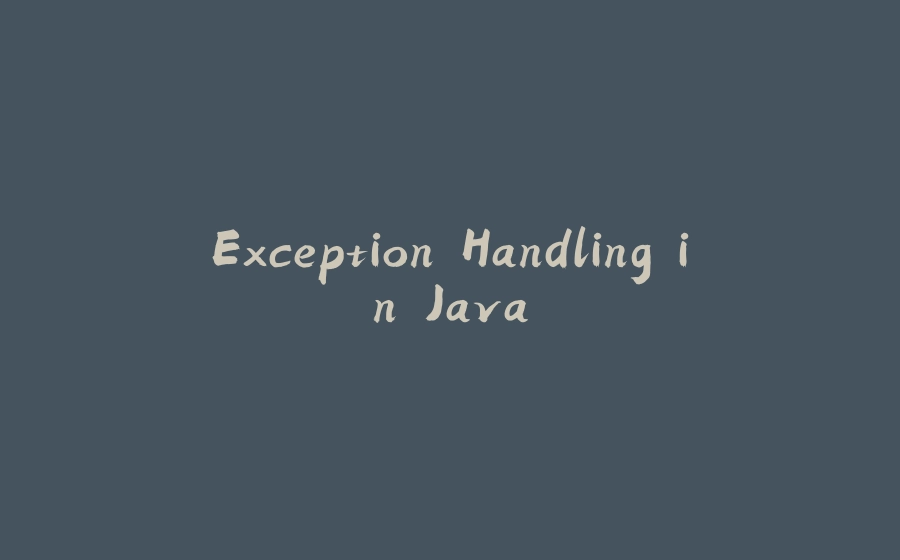Introduction
Java exceptions are events that disrupt the normal flow of a program during runtime. They are objects representing errors or unusual conditions that the program should handle to prevent crashing or unexpected behaviour.
Types of Java Exceptions
1.Checked Exceptions
-
These are exceptions that are checked at compile time
-
The program must handle these exceptions using a
try-catchblock or declare them using thethrowskeyword. -
Examples:
IOException,SQLException,FileNotFoundException.
2.Unchecked Exceptions
-
These occur during runtime and are not checked at compile time.
-
They usually result from programming errors, such as logic mistakes or improper use of APIs.
-
Examples:
NullPointerException,ArrayIndexOutOfBoundsException,ArithmeticException.
3.Errors
-
Represent serious problems that applications should not try to catch.
-
Examples:
OutOfMemoryError,StackOverflowError.
Exception Handling in Java
Java uses the following keywords for exception handling:
-
try: Code that might throw an exception is enclosed in a try block. -
catch: Handles specific exceptions thrown by the try block. -
finally: Block that is always executed after try and catch, regardless of whether an exception occurred. -
throw: Used to explicitly throw an exception. -
throws: Declares exceptions that a method might throw.
Syntax Example
import java.io.*;
public class ExceptionExample {
public static void main(String[] args) {
try {
// Code that may throw an exception
FileInputStream file = new FileInputStream("test.txt");
} catch (FileNotFoundException e) {
// Handling the exception
System.out.println("File not found: " + e.getMessage());
} finally {
// Always executed
System.out.println("Execution completed.");
}
}
}
Enter fullscreen mode Exit fullscreen mode
Commonly Used Exception Classes
IOException: Input-output operations failure.
SQLException: Database access errors.
ClassNotFoundException: Class not found during runtime.
ArithmeticException: Invalid arithmetic operations (e.g., division by zero).
NullPointerException: Attempt to use an object reference that is null.
IllegalArgumentException: Method has been passed an inappropriate argument.
Custom Exceptions
You can create custom exceptions by extending the Exception or RuntimeException class.
class MyCustomException extends Exception {
public MyCustomException(String message) {
super(message);
}
}
public class CustomExceptionExample {
public static void main(String[] args) {
try {
throw new MyCustomException("Custom error occurred");
} catch (MyCustomException e) {
System.out.println(e.getMessage());
}
}
}
Enter fullscreen mode Exit fullscreen mode
Summary
Java exceptions are critical for handling errors and maintaining application stability. They are categorized into checked exceptions (like IOException) that are handled at compile-time, unchecked exceptions (like NullPointerException) that occur during runtime, and errors (like OutOfMemoryError) indicating serious issues.
Java’s robust exception-handling mechanism includes keywords like try, catch, finally, throw, and throws, allowing developers to manage errors gracefully. Custom exceptions can also be created to address application-specific issues. By effectively leveraging Java’s exception handling, developers can build resilient and user-friendly applications. Happy Coding!!


























暂无评论内容